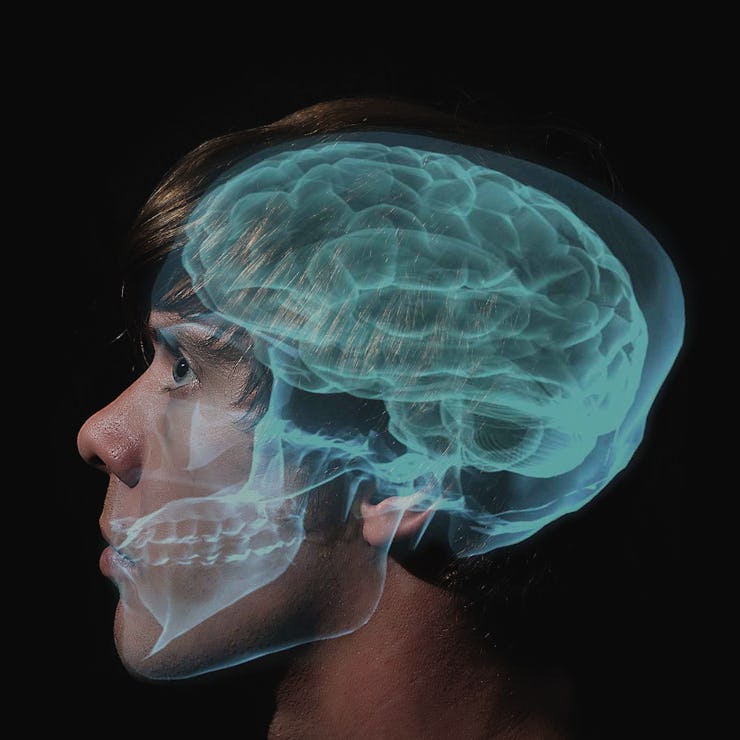Scientists Gaze Into Sleeping People's Brains to See What They're Dreaming
This is the first step toward cognitive enhancement for dreamers.

Dreams can be fuzzy, and not just because they can be hard to remember. They’re hard to study, too. Ever since Sigmund Freud hypothesized that daytime experiences influence the content of our dreams, psychologists and neuroscientists have grappled with how our dreams connect to our waking lives. And new research suggests there’s a scientific way to associate dreams with specific periods of waking time.
According to a paper published June 4 in the journal Social Cognitive and Affective Neuroscience, scientists found that they can use certain biomarkers in people who are dreaming to identify when they formed the memories that made up the contents of their dreams. To figure this out, researchers recorded the brainwaves of 20 students with an electroencephalograph throughout several nights of sleep. They woke the students up during rapid eye movement (REM) sleep and slow wave sleep and asked them to report on what they were dreaming. They then matched the contents of the dreams to 10 days of personal diaries the students kept during the previous days — while they were awake, of course.
Brainwaves could tell us when the contents of dreams first occurred.
The researchers, led by neuroscientist Jean-Baptiste Eichenlaub, Ph.D. from the Swansea University Sleep Laboratory in the United Kingdom, found that there was a positive correlation between dreams that were about recent experiences and the intensity of theta waves, a type of brainwave produced during REM sleep. In other words, when students were dreaming about recent experiences, their theta waves were stronger. The study’s authors suspect that the theta waves are evidence that the brain is semi-consciously working out recent experiences.
“This is the first finding that theta waves are related to dreaming about recent waking life and the strongest evidence yet that dreaming is related to the processing that the brain is doing of recent memories,” Mark Blagrove, Ph.D., a professor of psychology at Swansea University and one of the authors on the paper, tells Metro. He and his colleagues suspect that they could harness theta waves to encourage the brain to incorporate more waking experiences into dreams, which could potentially help us learn more effectively.
While we have a lot of evidence that correlates brainwaves to certain functions, we still don’t know exactly what causes them. But we do know how to influence them, and we can do it with external stimulation. This new paper adds to the growing body of research suggesting that human cognitive potential could be enhanced by stimulating the brain with the right frequency of waves — in this case, about 6 Hertz.
Further research will be necessary to determine whether brain stimulation can actually help aid memory formation, but this latest study provides a firm foundation because we finally have a biomarker for dreaming that actually indicates when the content of the dream occurred. Don’t hold your breath for a dream generator, though.